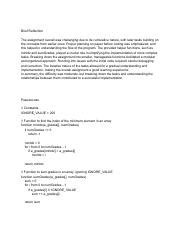Any seasoned programmer can attest to the fact that diving deeply into programming and computer science subjects often means tackling some truly formidable coursework. Among the array of potential pitfalls and peaks along the way, it’s often the more challenging courses that leave a lasting impression, providing both the steepest learning curves and the most significant payoffs. Reflecting on the shared experiences of many, we find that different courses bring unique challenges and learning opportunities that can sharply refine a programmer’s skill set.
One course that stands out in difficulty is the Compiler Design course. In this course, students often find themselves grappling with theoretical and practical knowledge, culminating in the creation of a parser or compiler for a fictional language. This involves understanding deep concepts about how languages themselves work, which primes learners with a robust comprehension of syntax analysis, code generation, and optimization processes. One programmer recounted the profound challenge and subsequent accomplishment, stating how this course established a foundation for understanding low-level operations in many programming tasks.
Another titanic task for computer science students is the Operating Systems course. Imagine being asked to build various kernel components, from memory management to virtual file systems, typically under stringent deadlines. It’s a gauntlet that throws students into the deep end with concepts fundamental to understanding how software and hardware interact. The sheer complexity of these topics often extends beyond theoretical understanding into practical implementation, as one student shared the grueling experience of creating a mutex and hacking virtual memory in a mere two weeks. The reward is an indispensable skill set that renders one capable of managing robust and efficient software systems in professional scenarios.
For those looking to explore the frontier of programming paradigms, courses in Functional Programming using languages like Haskell or OCaml can be particularly challenging. These paradigms push the boundaries of conventional programming, requiring a shift in mindset that can be both vexing and illuminating. Haskell, with its pure functional approach, challenges programmers to think differently about state and effects. Students often find themselves getting initially daunted by these concepts, yet those who persevere gain profound insights into how code can be made more predictable and reliable.
Courses in Logical Programming, particularly using Prolog, have proven to be another formidable challenge. Prolog’s declarative nature often leaves students frustrated, struggling even with basic operations. Many describe their journey with Prolog as a mind-bending experience that repeatedly puts their logical reasoning to the test. Despite its steep learning curve, mastering Prolog hones problem-solving and algorithmic skills that have far-reaching applications across various domains of computing.
The rigorous academics of graduate-level security courses, like those at UT Austin focusing on cryptographic algorithms, can leave students bewildered. Imagine the challenge of implementing AES and RSA from scratch on an emulator, without relying on Bignum libraries. These courses demand not only a theoretical understanding of mathematic principles underlying cryptography but also the practical ability to translate these principles into secure, efficient code. While such tasks may cause considerable strife and sleepless nights, they also cultivate a thorough appreciation for the intricacies of cybersecurity.
Equally daunting are theoretical courses that delve into the more abstract realms of computation like Formal Methods using Z notation or Predicate Logic in Prolog. Courses like these often challenge students to verify the correctness of algorithms and systems using mathematical proofs, a skill crucial yet often detached from tangible programming projects. The intellectual rigor demanded by these subjects can revolutionize a programmer’s precision in writing and verifying code, a nod to the synergy between theory and practice.
In navigating the labyrinth of these challenging courses, one salient piece of advice emerges: embrace the difficulty for the immense learning it offers. Though the steep climbs may seem insurmountable, the resulting mastery and confidence pay dividends throughout a programming career. Whether it’s understanding the underlying hardware through Electrical Engineering courses or excelling in the theoretical foundations of algorithms and data structures, each challenge prepares you to solve real-world problems with elegance and efficiency. So, if you’re eager to push the boundaries of your knowledge, take the plunge into these coveted yet challenging realms of computer science.


Leave a Reply